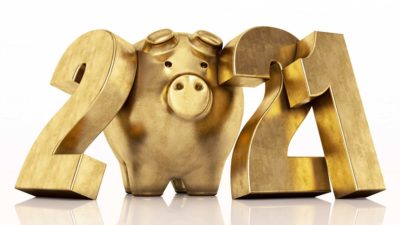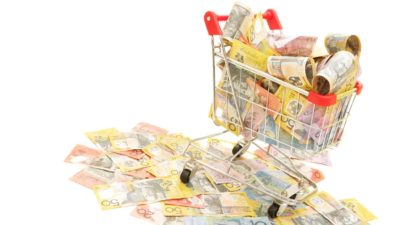If you read any US news sites, you've likely come across reporting of a phenomenon the Americans are calling the 'hollowing out' of the middle class.
It's a variation on the age-old theme of the rich getting richer while the poor get poorer. In this case, the story goes, the middle class is getting smaller as its former members either become wealthier and join the ranks of the rich, or – often as a result of job loss – lose their homes and either remain unemployed or join the ranks of the working poor.
Spared the worst
Thanks largely to a mining boom and a solid fiscal position as we entered the GFC, Australia has been spared much of the pain of widespread job losses and economic contraction. It's true that our economy is slower than many of us would like, and that consumers are continuing to weigh discretionary spending carefully, but overall, Australia is the envy of the rest of the developed world.
Despite that combination of good fortune and good management, Australian retailers will be the first to tell you that times are tough. There's an element of 'talking their kick' here – I can't remember when a retailer ever said times were great – but the underlying statistics back them up this time.
But learning by observation
I've written before about the reasons why I believe retail is soft, but it can be effectively summed up in two words – deleveraging and confidence. Australia is standing on the top of a mountain, watching the storm ravage the village in the distance, and we're battening down the hatches just in case the storm makes landfall here. It won't – at least not in the form it has taken in the US. (It's far more likely that any economic slowdown here will be caused by a hiccup in Chinese mineral demand or mineral prices in general). Still, shocked by what we've seen overseas, we can't help but pull back our spending, just in case.
It's not the middle class in Australia that's being hollowed out – it's the middle-of-the-road companies instead. Many Australians are trading down – buying cheaper groceries, cheaper clothes and shopping online where they can find better prices. For those who are still flush, or when the rest of us feel like treating ourselves, we're happy to splurge on something nice.
Choosing a path
What that means for Australian companies is that unless you have a 'low price' positioning, or you're selling an aspirational product (think desirable clothes brands, or an island holiday), you're struggling to attract customers.
Some companies stand to benefit handsomely from this trend.
In the bargain-shopping space, Wesfarmers (ASX: WES), which owns Coles, Target and Kmart, has understood this trend for a long time. In supermarkets, Coles are aggressively rolling out their own branded products at lower prices, while Kmart has launched headlong into a price-led advertising campaign on products they are sourcing directly from the suppliers.
Equally, The Reject Shop (ASX: TRS), long the bargain seeker's friend, has recently commenced an advertising blitz reminding consumers of the value on offer in their stores. They've had some recent setbacks, not least a flooded warehouse in Queensland, but if Australian shoppers persist in our love of a bargain, they'll find themselves right in The Reject Shop's sweet spot. The company needs to rebuild a little faith with investors, but past history suggests that's likely.
At the other end of the scale, OrotonGroup (ASX: ORL) has withstood the storm beautifully, with sales and margins both largely intact, and growth still on the agenda. No-one would confuse Oroton or Polo Ralph Lauren shoppers with bargain hunters – while the company has occasional sales, the prices are well into triple figures for a good chunk of their merchandise. That said, their consumers are obviously prepared to pay up for the brand and its quality – good signs for a business during these less confident times.
Another company which has navigated the obstacles with seeming ease is Flight Centre (ASX: FLT). Far from seeing deserted travel agencies, Flight Centre continues to go from strength to strength, with volumes rising across its network. The strong Australian dollar is no doubt a key contributor to this company's success, but they continue to deliver the goods year in, year out.
Foolish take-away
Yes, there are plenty of consumers – and retailers – feeling the pinch at the moment. The Reserve Bank' December interest rate cut is perhaps evidence of some concern that the economy has cooled too far. That said, clever companies are still getting it done where it counts – they have a clear consumer offering, well executed, that is delivering results.
None of these companies is flat-out cheap at the moment – but it's often the case that quality businesses seldom are. Sometimes you just have to pay up for quality, and you can still do well under those circumstances. The best of these four, for my money, is OrotonGroup, but The Reject Shop also looks like an interesting candidate for more research at the current price.
Are you looking for more quality stock ideas? Motley Fool readers can click here to request a new free report titled The Motley Fool's Top Stock For 2012.
More reading
- ASX shares soar and how you can beat the lawyers at their own game
- 5 ASX shares for the rest of your life
- Seth Klarman's twenty investment lessons
Scott Phillips is The Motley Fool's feature columnist. Scott owns shares in OrotonGroup. The Motley Fool's purpose is to educate, amuse and enrich investors. This article contains general investment advice only (under AFSL 400691). Authorised by Bruce Jackson.








